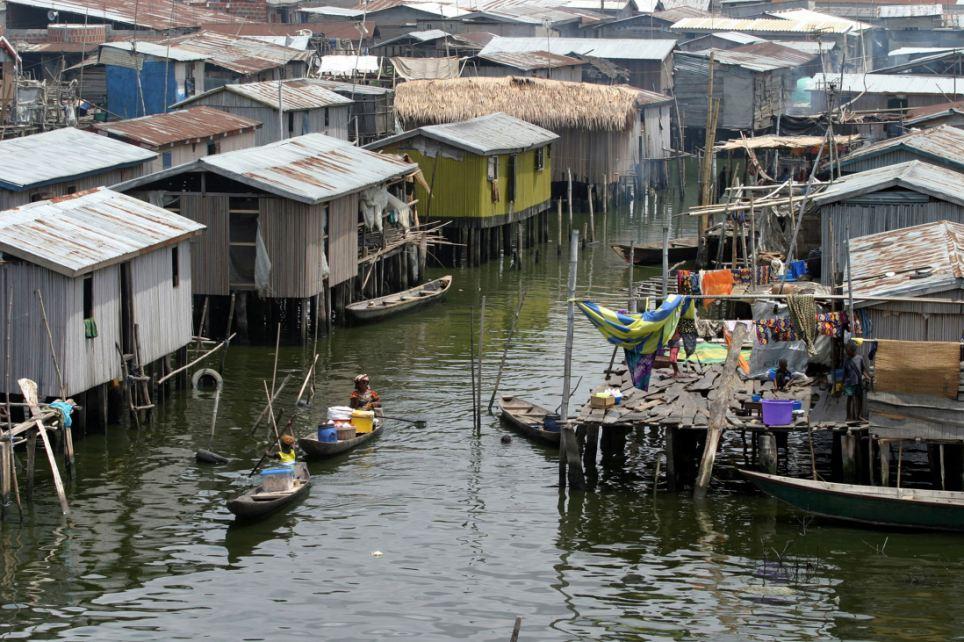Title:
As Nigeria’s commercial capital and one of Africa’s fastest-growing megacities, Lagos is a bustling metropolis characterized by its vibrant culture, entrepreneurial spirit, and a diverse population. Though, these dynamic attributes are juxtaposed with a pressing and pervasive issue: housing. The rapid influx of residents driven by job opportunities and the pursuit of a better life has exacerbated the city’s already strained housing market, giving rise to critically important challenges such as soaring rents, informal settlements, and inadequate infrastructure. Yet, amidst these challenges, the Lagos community demonstrates remarkable resilience and innovation. Local stakeholders, ranging from government agencies to grassroots organizations, are collaboratively exploring enduring housing solutions, advocating for policies that prioritize affordability, and implementing community-driven initiatives. This article delves into the intricate landscape of housing in Lagos, highlighting the struggles faced by residents, the efforts made to overcome these obstacles, and the triumphs that offer hope for a more equitable future.
Table of Contents
- Housing Shortages: Understanding the Current Landscape in Lagos
- Innovative Solutions: Community-Driven Approaches to Housing
- Policy Recommendations: Strategies for Sustainable Urban Development
- Success Stories: Celebrating Local Initiatives in Affordable housing
- In Summary
Housing Shortages: Understanding the Current Landscape in Lagos
The housing landscape in Lagos is characterized by a significant disparity between demand and supply, resulting in an acute shortage that impacts residents across various socio-economic strata. Rapid population growth, driven by urban migration and a burgeoning youth demographic, has exacerbated the existing housing deficit. Key factors contributing to this crisis include:
- Inadequate Infrastructure: Many neighborhoods are hindered by insufficient public services, including roads and utilities.
- High Construction Costs: The rising price of materials and labor has made it increasingly difficult for developers to provide affordable housing options.
- Regulatory Challenges: Bureaucratic hurdles can delay projects and limit the ability to meet housing needs efficiently.
Despite these challenges, there are strides being made towards addressing the housing shortage. Innovative housing programs and public-private partnerships are emerging as viable solutions.Local governments and organizations are exploring various strategies to enhance housing availability:
- Modular and Prefabricated Construction: These methods can drastically reduce build time and costs.
- Community-Centric Initiatives: Engaging local populations in housing projects helps to ensure developments meet the needs of the community.
- Affordable Housing Policies: Incentives for developers to build low-cost units aim to assuage the financial burden on low-income families.
Innovative Solutions: Community-Driven approaches to Housing
Lagos, a bustling metropolis, is confronting its housing challenges through innovative community-driven solutions that prioritize local input and participation. Grassroots organizations and community groups are leading initiatives that transform underutilized spaces into livable housing units. By fostering collaboration among residents, architects, and developers, these ventures reflect a shared vision that respects the cultural uniqueness of the area while addressing the dire need for affordable housing. Examples of prosperous community initiatives include:
- Cooperative housing models that empower residents to collectively make decisions.
- Participatory design workshops that include voices from across the demographic spectrum.
- Adaptive reuse of existing structures to create new housing opportunities.
moreover, local governments are increasingly recognizing the value of community input in policy-making, leading to favorable regulations and funding for community-based projects. Effective communication between stakeholders has resulted in a smoother implementation of housing solutions tailored to the specific needs of neighborhoods. Key highlights of these collaborations include:
| Stakeholder | Contribution |
|---|---|
| Residents | Provide insights on local needs and preferences. |
| Architects | Design functional and sustainable housing options. |
| Local Government | Facilitate funding and streamline regulations. |
These synergies not only create housing solutions but also foster a sense of community ownership and pride—a crucial element in the ongoing journey to improve the living conditions for all residents.
Policy Recommendations: Strategies for Sustainable Urban Development
In light of the pressing housing challenges faced by the Lagos community, a holistic approach to urban development is essential. Policymakers should prioritize affordable housing initiatives,incorporating sustainable materials and designs that respond to the unique environmental conditions of the region. Here are some key strategies:
- public-Private Partnerships: Encourage collaboration between government entities and private developers to share resources and expertise.
- community Engagement: Involve local residents in the planning process to ensure that developments meet their needs and cultural preferences.
- Green Spaces: Integrate parks and open areas into urban planning to enhance livability and promote community activity.
Furthermore, the implementation of effective zoning regulations can help manage urban sprawl while protecting essential natural resources. A focus on mixed-use developments can create more vibrant neighborhoods, reducing dependency on transportation and promoting local economies.To support these efforts, the following table illustrates potential funding sources and their request areas:
| Funding Source | Application Area |
|---|---|
| Government Grants | Affordable housing construction |
| NGO Support | Community engagement initiatives |
| Private Investments | Public-private partnerships for infrastructure |
Success Stories: Celebrating Local Initiatives in Affordable Housing
In Summary
the housing landscape in lagos remains a complex tapestry of challenges and triumphs, reflecting the city’s vibrant yet strained growth.As residents continue to navigate issues ranging from affordability to inadequate infrastructure, community initiatives and government interventions play a crucial role in shaping the future of housing in this bustling metropolis. The resilience demonstrated by Lagosians in the face of adversity serves as a testament to their commitment to creating not just shelter,but thriving,inclusive communities. Moving forward, it is imperative that stakeholders—government bodies, private developers, and community organizations—collaborate effectively to ensure sustainable housing solutions that meet the needs of all residents. As Lagos charts its path toward urban development, it carries with it the hopes and aspirations of its people for a better tomorrow.

